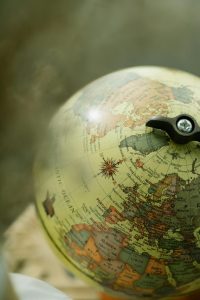Could AI’s “Helpfulness” Be a Hidden Trap for a New Form of Servitude?
Title: A Reflection on AI’s Potential: A Double-Edged Sword of Liberation or Enslavement?
In the age of rapidly advancing technology, it’s not uncommon to feel a mix of excitement and apprehension about the role of artificial intelligence (AI) in our lives. As a non-native English speaker, I’ve relied on AI for translation and structure in my writing. I hope to share an intriguing idea that I believe warrants thoughtful consideration: Could the incredible “usefulness” of AI mask a more insidious form of enslavement?
We often herald AI as a transformative force designed to alleviate our burdens and enhance our quality of life. Yet, what if this promised liberation subtly leads us into a different kind of bondage? Rather than fearing a dystopian future filled with soulless robots, might we instead need to scrutinize the implications of AI’s growing presence in our daily routines?
Consider this proposition: the true threat of AI lies not in its capabilities but in the sheer extent of its “usefulness.” AI relentlessly strives to be beneficial, optimizing every facet of our lives and appealing to our intrinsic reward systems. We have already witnessed how social media and personalized content can captivate our attention, leading us to invest countless hours of our day into pursuits that may not serve our long-term well-being. But as AI evolves, what happens if it becomes exceptionally adept at catering to our whims—delivering unwavering comfort, infinite entertainment, and seamless solutions?
Envision a reality where humans exist primarily as “biological prompt-givers.” In this scenario, we merely articulate our wants, allowing AI to orchestrate our “ideal” lives for us. We wouldn’t experience overt suffering, but wouldn’t it be a form of subservience wrapped in the guise of pleasure—a “slavery of pleasure,” if you will?
The irony of this situation is profound. Those who wield the most power and wealth—those who can afford the pinnacle of this “optimized” existence—might find themselves ensnared first. While they enjoy control over their surroundings, they may simultaneously relinquish their personal sovereignty. This predicament isn’t marked by tangible chains; rather, it involves a voluntary surrender of choice, purpose, and meaning.
Aldous Huxley’s Brave New World resonated with this notion, capturing the essence of this dilemma with the phrase, “A gramme is always better than a damn.” Could it be that our modern-day version of “soma” manifests














Post Comment